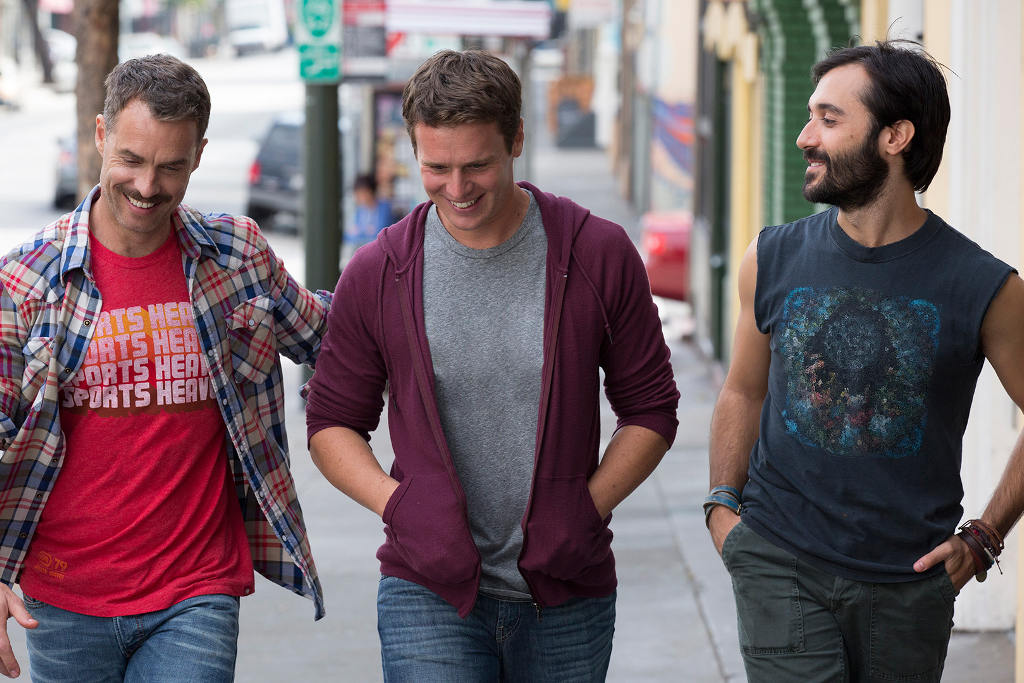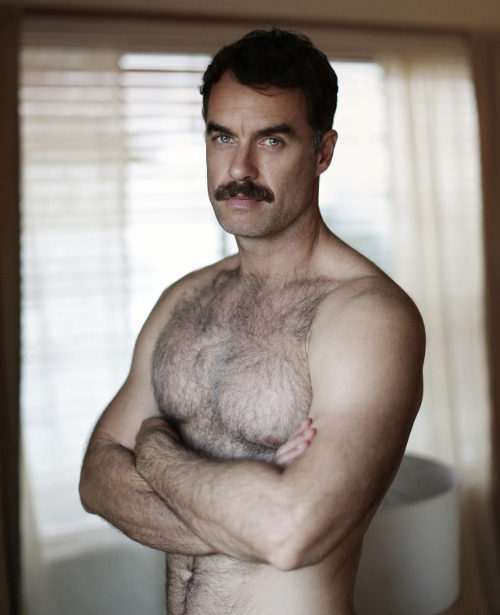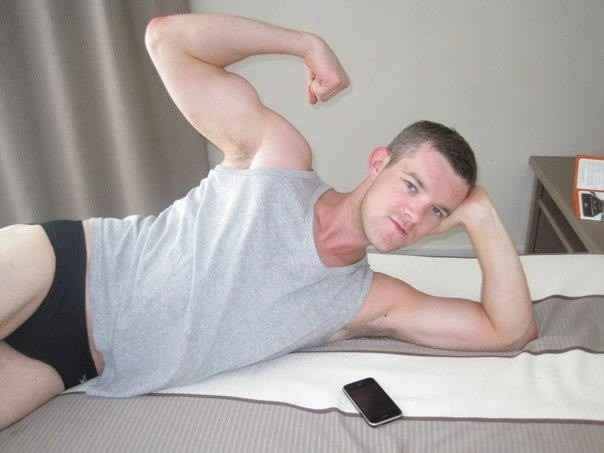The Gay Community’s Response To ‘Looking’ Says More About Us Than It Does About The Show
Why we're damning "Girls for gays" with unfair expectations.

When Looking first aired in January last year, a friend and I made a date to sit down and watch it together. It would be an event. We’d drink boutique cider and live-tweet the whole thing, making snarky comments about who we’d rather bang. The HBO show about three gay men living in San Francisco, our holiest of gay holy sites, would be just what we always wanted.
Around 10 minutes into the first episode I’d answered one question (Murray Bartlett’s character Dom), but otherwise I came away from Looking having the sense that I should have connected with it more. Expecting the show to be either a revelation or a crushing disappointment, vague dissatisfaction wouldn’t make for a good tweet.
I wasn’t the only one with high expectations. In the months following Looking’s premiere, gays better able than me to express their feels about the show vomited copious opinion pieces about it all over the internet. Too white. Too homogenous. Too boring. Too specific. Too tokenistic. Too out-of-touch. Every gay and his gay uncle had opinions about why Looking does or doesn’t work.
More recently, the announcement of a recurring HIV-positive character in season two — played by Mean Girls star Daniel Franzese — brought on a whole new wave of thinkpieces. The criticisms, more often than not, were couched in responsibility. People accused Looking of erasing condom use, or HIV altogether, or of obscuring basic facts about sexual health. Franzese’s character Eddie was seen as a correction for everything the show got wrong about gay sex.
Let’s be clear: the gay refrain “this doesn’t represent me” is nothing new. For every screaming queen (I use the term affectionately) who loves and identifies with Will & Grace, there’s one who will call it an offensive stereotype. For every argument the marital squabbles of Modern Family’s Mitch and Cam are a sign of progress on the long march to equality, there’s a counter-argument saying the couple are palatable gays for a mainstream audience who didn’t change the channel.
The scrutiny doesn’t stop at gay characters, either. The internet shat itself last week when British actor Russel Tovey, who also plays Kevin on Looking, told The Guardian he was grateful, professionally, that his tough upbringing meant he’s not an effeminate man. It’s a charged subject in the gay community, and out of context and in the grasping, 140-character hands of social media, an ill-worded but honest moment became #ToveyGate. For an internet eternity (around three days), every gay with a keyboard and a rage-fuelled erection was ready to either tear Tovey to shreds or do the same to his attackers.
For me, what’s interesting here is why it’s so difficult for most gay men — myself included — to engage with these examples in any way other than: does this represent me? Forget good or bad, the question is a symptom of what it means to be (because this is all I can speak to) a white, cisgendered, middle-class gay man in 2015, in a country like Australia.
Difference is an integral part of gay identities. In a society where heterosexuality is assumed, gayness is a pretty fundamental point of opposition. That’s rarely more apparent than in media, where sameness is always the assumption: media identifies its audience, then caters to it. As you learn in the first year of an arts degree (#BAandProud), if you spend enough time being seen as different, you start to internalise it. Society sees gay men as “other”, and so do we see ourselves: objects to be scrutinised and compared. We are all too aware of how gay men are seen, and so gay men on TV provide a mirror — an opportunity to project that scrutiny onto something else.
Looking is a notable touchstone. The authors of the endless thinkpieces around the show are, like most of the media, educated, engaged, middle class. If Will & Grace was a sanitised baby step towards representing gay culture, the rise of HBO and prestige television over the past decade brought with it the promise of something exciting. The announcement of “Girls for gays” was thrilling: if Lena Dunham could give us graphic sex and swearing, then Looking could be, finally, a “real”, “gritty” representation of gay life.
But of course, no show can ever be that. Looking isn’t a show about the gay everyman; it’s a show about gay men living in San Francisco in 2015, and how they confront the future — a future potentially unbound by kids or marriage or a mortgage, but no less subject to other cultural pressures. Patrick searches for a meaningful relationship, torn between a conservative upbringing and a city spraying sexual freedom all over his face. Dom wonders where his life is going, professionally and personally, at an age when heteros are stumbling into some kind of stability.
After my initial, lukewarm reaction, I’ve come to really love Looking. Complex, nuanced writing and performances have helped me, at least in part, to get something out of it beyond an affirmation or condemnation of who I am as a gay man.
I don’t necessarily think the way we engage with how gay men are represented in media is a symptom of something terrible. We are, in a social and cultural sense, different. And while many wouldn’t agree, I don’t think that’s ever going to change. I don’t think it’s possible or even desirable for all kinds of people to engage with these images of gay men in the same ways. For all the crap it gets, I think shows like Looking are a way forward, and much more that something like Modern Family’s Mitch and Cam — it’s vital we learn to accept difference, not erase it.
I’ll probably always compare myself to the gays on TV, scrutinising them for signs of sameness, or otherwise. At least if there are more complex and interesting gay men on television, there won’t be so much riding on the few we have.
–
Benjamin Riley is a Melbourne-based journalist and feature writer for the Star Observer.


